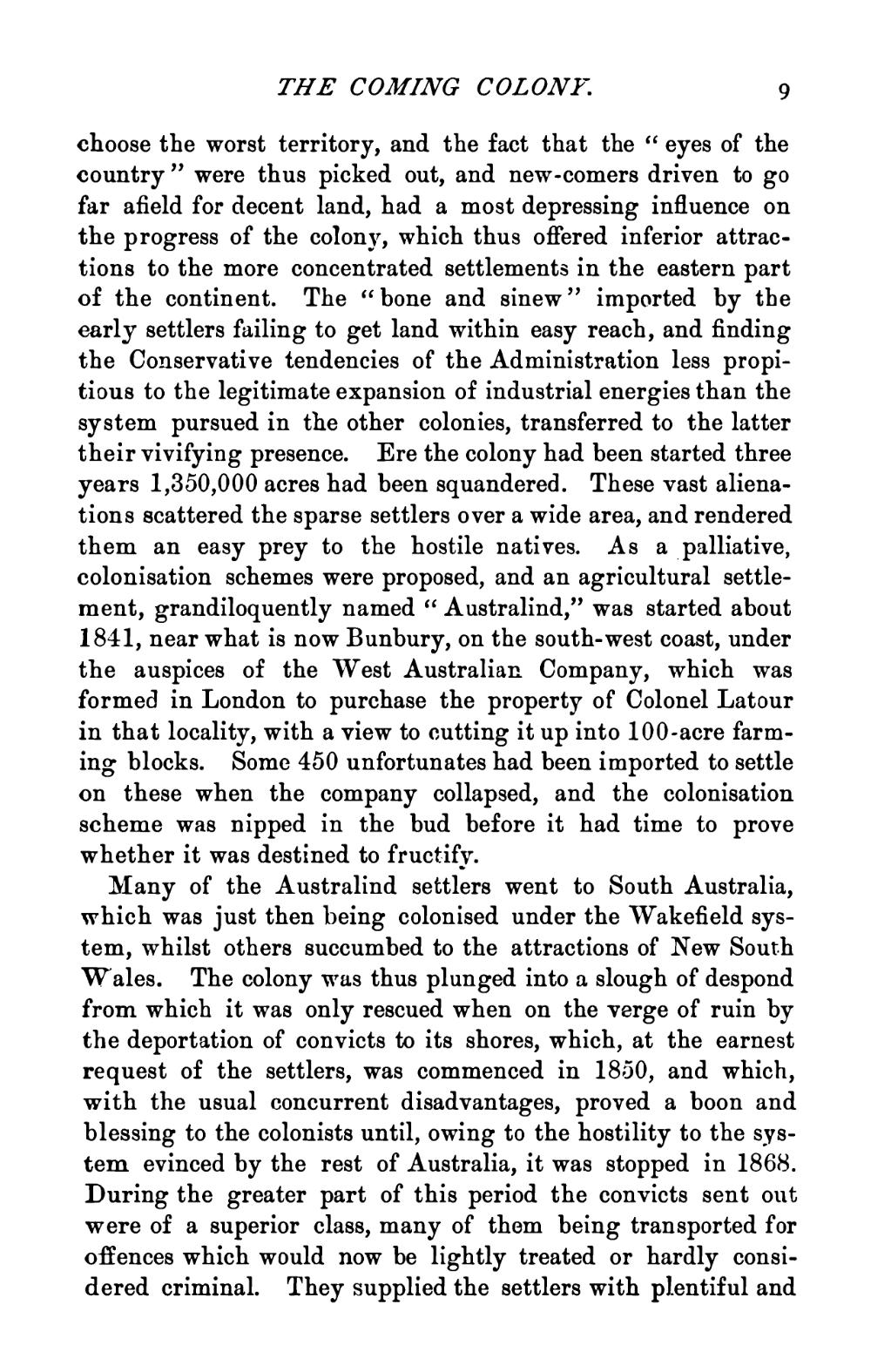choose the worst territory, and the fact that the "eyes of the country" were thus picked out, and new-comers driven to go far afield for decent land, had a most depressing influence on the progress of the colony, which thus offered inferior attractions to the more concentrated settlements in the eastern part of the continent. The "bone and sinew" imported by the early settlers failing to get land within easy reach, and finding the Conservative tendencies of the Administration less propitious to the legitimate expansion of industrial energies than the system pursued in the other colonies, transferred to the latter their vivifying presence. Ere the colony had been started three years 1,350,000 acres had been squandered. These vast alienations scattered the sparse settlers over a wide area, and rendered them an easy prey to the hostile natives. As a palliative, colonisation schemes were proposed, and an agricultural settlement, grandiloquently named "Australind," was started about 1841, near what is now Bunbury, on the south-west coast, under the auspices of the West Australian Company, which was formed in London to purchase the property of Colonel Latour in that locality, with a view to cutting it up into 100-acre farming blocks. Some 450 unfortunates had been imported to settle on these when the company collapsed, and the colonisation scheme was nipped in the bud before it had time to prove whether it was destined to fructify.
Many of the Australind settlers went to South Australia, which was just then being colonised under the Wakefield system, whilst others succumbed to the attractions of New South Wales. The colony was thus plunged into a slough of despond from which it was only rescued when on the verge of ruin by the deportation of convicts to its shores, which, at the earnest request of the settlers, was commenced in 1850, and which, with the usual concurrent disadvantages, proved a boon and blessing to the colonists until, owing to the hostility to the system evinced by the rest of Australia, it was stopped in 1868. During the greater part of this period the convicts sent out were of a superior class, many of them being transported for offences which would now be lightly treated or hardly considered criminal. They supplied the settlers with plentiful and
